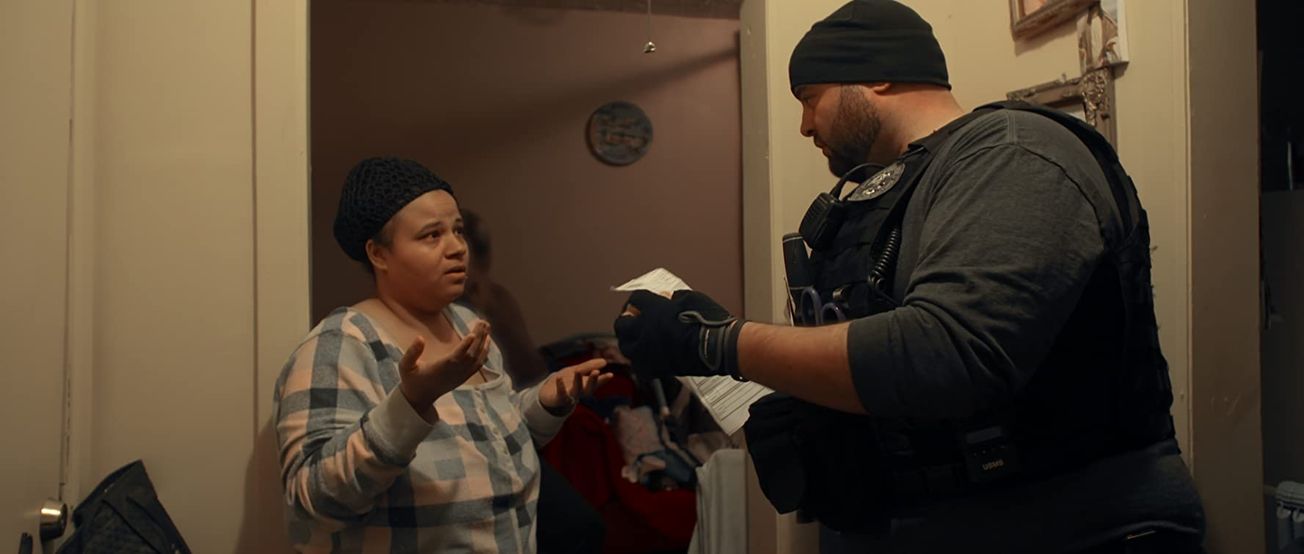By Marta Macedo, Third Year, Film and Television
Depicting the horrifying reality of the deportation process left in the hands of the infamous Immigration and Customs Enforcement agency (ICE), Immigration Nation (2020) shows the gruesome and tragic reality of today’s United States.
The docu-series, which is comprised of six hour-long episodes and available to stream on Netflix, leaves very little up to its audience’s interpretation. As it covers the various steps involved in the deportation of an individual, this documentary allows time for both sides of the story and refuses to shy away from the brutality of the procedures put in place to enforce a policy that leaves little leeway around which to work.

Providing political context in cuts to text on black screens, this series focuses on and emphasises the changes that ICE has undergone since the start of the Trump administration. Nothing is off limits on screen and we are shown every step of the way, from the officers inveigling their way into people’s homes to arrest them, to the detention centres where one awaits their fate for months on end with little to no communication. We are shown the wall at the border and the phone calls between husband and wife, each in their own country. We are shown the ankle tags, the desperation in every child’s voice, the war veterans sent back to countries for which they’ve never fought.

Relying mostly on talking-heads and a stream of follow-up interviews, not only are we witness to the devastation inherent to moments like this in a person’s life but to the side of the officer enforcing such devastation as well. Several of them speak up – quite frankly, at that – in an attempt to justify their actions and explain what motivates them. These officers know the reputation they have, they know what the world thinks of them, and they’re here to tell you that they’re only doing their job.
Beca Heller, a human rights lawyer featured in the series, explains that in a “system of terror and trauma” as widespread as this one, it becomes easy for the people working within it at the lower levels to lose notion of the consequences of their actions, to think that they’re only drones filing papers, detached and disconnected from the humanity ingrained in their work.

Atrocious as the subject may be in its own right, one can’t help but feel slightly manipulated by the editing at times. Though the frequent cutaways to shots of the officers’ badges may mimic the way they’re constantly brandished around, it nevertheless leaves a taste of intrusion, almost as if your emotions are being handled directly by the filmmakers. The testimonies of the parents separated from their children and their later reunification feel a tad voyeuristic too, punctuated even further by the incessant cuts to shots of tears streaming down someone’s cheek - this is not a subtle series.
However, the series’ most lasting effect doesn’t come from any of its formal aspects. Its heart lies in our certainty that these are people’s lives; people who constantly live in fear, a fear that, even when finally in freedom, never really leaves them. Immigration Nation tells real stories that we wish were fiction.
Featured: IMDb / 2020 Netflix, Inc.
Have you seen Immigration Nation?







